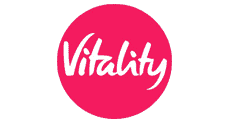Can I Cancel My Health Insurance At Any Time?
Written By: Stuart Hendy
[last_updated]
Can I cancel my health insurance at any time?
Private health insurance covers unexpected medical treatments, but it is not a compulsory product. Once you take a health insurance policy, it is usually for life. However, circumstances can change—maybe it’s too expensive, you prefer the NHS or you’re unhappy with your current insurer. Wondering, “Can I cancel my policy?” Yes, any time. You may also get a refund. This guide explains when to cancel, how to cancel and the impact of this decision.
Get Tailored Health Insurance Quotes from Top UK Insurers
Cancelling your health insurance policy may involve some fees. Your health provider legally has to give you a cooling-off period—usually 14 days, but with Bupa 21 days. During this period, you can change, adjust or cancel your policy. After this period, you may incur charges, such as a cancellation fee with Vitality or simply lose any monthly premium you have already paid. Health insurance isn’t a contract like a loan, it’s based on rolling month-to-month payments. You won’t go through hard or soft credit checks when signing up for a policy and you won’t be penalised for cancelling your direct debit. Always read the policy documentation and small prints before considering this option.
How to cancel my health insurance policy during a cooling-off period?
If you’ve decided that your health insurance policy isn’t right for you and you want to cancel, the best time to do so is during the cooling-off period. Contact your insurer or broker to cancel your policy from the start date or specify a specific date for the cancellation. It’s important to also cancel your direct debit with your bank to prevent any errors with refunds, as mistakes can sometimes occur with both the insurer and your broker. This step ensures a smoother process and helps avoid any confusion or unexpected charges.

What Are the Reasons to Cancel a Health Insurance Policy?
Signing up for health insurance is an important decision and commitment. If you are considering cancelling your policy, there must be a reason. Based on our experience, clients typically cancel their policies for reasons such as:
- Unhappy with the current insurance provider
- Pre-existing conditions are excluded
- Joining a work policy
- Found a cheaper plan
- Moving to another country
- Can’t afford the monthly premium
- Joining a family policy
Will I get any penalties for cancelling my policy?
No, you won’t face any penalties for cancelling your insurance during the cooling-off period or by the end of the policy term (usually 12 months). If you’re paying monthly premiums, you will be charged for the payments you’ve already made. If you paid annually, your insurer will charge for the months you used and refund the rest. Vitality’s policies are different—there may also be additional charges if you need to continue paying for devices like an Apple Watch, as these are separate contracts.
| Insurance Provider | Cooling off Period | Cancellation Fee | Penalties |
|---|---|---|---|
| Aviva | 14 days | £0 | None |
| AXA | 14 days | £0 | None |
| BUPA | 21 days | £0 | None |
| Vitality | 14 days | £0 | Cannot rejoin for 6 month |
| Freedom Health | 14 days | £20 | None |
| The Exeter | 14 days | £0 | None |
| WPA | 14 days | £0 | None |
| National and Friendly | 14 days | £0 | None |
| General and Medical | 14 days | £0 | None |
Does cancelling my health plan affect my medical cover until the cancellation takes effect?
No, it won’t. If you cancel your policy mid-month, your usual policy cover will continue until the end of that month. However, after that date, your medical treatments will no longer be covered. If you cancel on a specific date, your policy will be terminated from that date onwards, and you won’t be able to claim any treatments from your insurer after that point.
For example, if you decide to cancel your health insurance policy on the 15th of the month, your coverage will remain active until the end of that month. After the 31st of the month, any medical treatments will not be covered. If you choose to cancel on the 1st of the month, your policy will be terminated immediately from that date, and you won’t be able to make any claims for treatment after this date.
Can I cancel my health insurance policy while receiving treatments?
You can cancel your health insurance at any time. Your treatments will be covered as long as your policy is active. However, after the cancellation date, you will need to self-fund any private treatments. The same applies to your work health insurance policy—once you leave your job, your health insurance will stop on the same day, and no private treatments will be covered.
Will I lose cover for pre-existing conditions after leaving the company scheme?
When you leave a company healthcare scheme, most providers give you 120 days to switch to a personal health insurance plan. This option, called a “Group Leavers Scheme,” lets you keep the same type of coverage you had at work. You’ll usually be offered Continuous Medical Exclusion underwriting, meaning your pre-existing conditions may still be covered, depending on the terms of your policy. If you join after 120 days, you can still get insurance, but conditions you previously claimed for are likely to be excluded.
How to reduce private health insurance costs?
In many cases, health insurance is cancelled due to affordability. If you find that private health insurance is expensive or if your circumstances have changed, there are ways to find more affordable policies. Here are some steps you can take to reduce the cost of your health insurance.
Reduce the level of cover
Choosing the right level of cover is important when it comes to health insurance. The more comprehensive your level of protection, the higher the cost. Here’s how different levels can affect your policy:
Basic cover
With a basic level of cover, your insurance will fully cover inpatient treatments privately, but you’ll need to rely on the NHS for consultations and diagnostics. This option is more affordable but may not give you the same flexibility as other plans.
Mid-Range cover
Mid-range level adds some private outpatient and diagnostic services. While inpatient treatments remain fully covered, you’ll have some access to private consultations and diagnostics. This option keeps a balance between cost and protection.
Comprehensive cover
This level offers full protection—full outpatient, inpatient and cancer treatment cover. This is the most expensive option but provides the highest level of care. If you can afford it, this plan ensures that you have access to comprehensive private treatments.
Benefits of Private Medical Insurance
Core Cover:
Optional Add-Ons:
For more information or to customise your plan, contact us today!
Choose a basic hospital list
By opting for a hospital list where your insurer decides which consultants or hospitals you can use, you can significantly reduce your monthly premium—up to 20%. Your insurer will typically offer three hospitals that are closest to your address. Choosing from this list can save you money without limiting your access to essential care.
Increase your policy excess
To further reduce your premium, consider choosing a higher excess amount. This is the sum you agree to pay before your insurance begins to cover your treatment costs. It’s important to ensure that the chosen excess amount is readily available to you at the point of a claim, as this strategy can help lower your premium significantly.
Six-Weeks option
Opting for a six-week treatment option can also lower your premium. This means agreeing to be treated by the NHS within six weeks. If the NHS cannot provide the necessary treatment within this timeframe, your insurance will cover the cost. Especially with the current NHS waiting time, this option tends to be more affordable while still ensuring you receive timely care if needed.
Benefits of keeping your health plan
Having a health policy comes with many benefits. One of the biggest advantages is the ability to skip long NHS waiting times, especially since the COVID-19 outbreak. For example, the waiting time for joint replacement can be up to 36-48 months on the NHS.
With private health insurance, you can get treatment sooner at a private hospital. Another benefit is having a private suite all to yourself, so you won’t have to share with other patients. This provides a more comfortable and personalised experience during your treatment.
Having private health insurance also means you can access treatments or experimental drugs for cancer that may not be available on the NHS or are not offered due to cost.
How can we help with your medical insurance policy?
At PremierPMI, with over 40 years of experience in health insurance, our specialists bring at least 15 years of expertise to help you. Here’s how we can help you with your medical policy.
- Find the best and most affordable health insurance policy, clearly explaining what’s covered and what isn’t.
- Switch seamlessly if you’re not happy with your current provider.
- Assist with transitioning out of your work scheme and finding a policy that covers pre-existing conditions.
- Guide you through the claim filing process.
- Help you cancel your policy if needed.
Insurance companies are unable to advise on their own products—ultimately, you have to decide which policy is best for you. At PremierPMI, we are unbiased and support our clients, not the insurance providers. Our goal is to provide expert guidance and help you choose the right policy that meets your needs, ensuring you get the best coverage for your unique situation.
Frequently Asked Questions
How it works
Step 1. Answer a few simple questions
Step 2. Get tailored quote
Step 3. Get covered and start saving
Why Choose Us
We offer completely free and no obligation advice on Private Health Insurance. Our experienced advisors will take the stress away from you and do all the hard work in finding you the best Provider by comparing quotes with the top leading providers in the market. We have worked directly with AXA, Aviva, Bupa and Vitality for over 40 years, we have been tailor-making the best policies for our customers.
Health Insurance People
Get expert advice from our dedicated health insurance advisors for free
24/7 Customer Care
You can contact us anytime and one of our health insurance consultants will always be available to you.
Claims Support
We will be there for you throughout the claims process to ensure that it is easy and stress-free.













